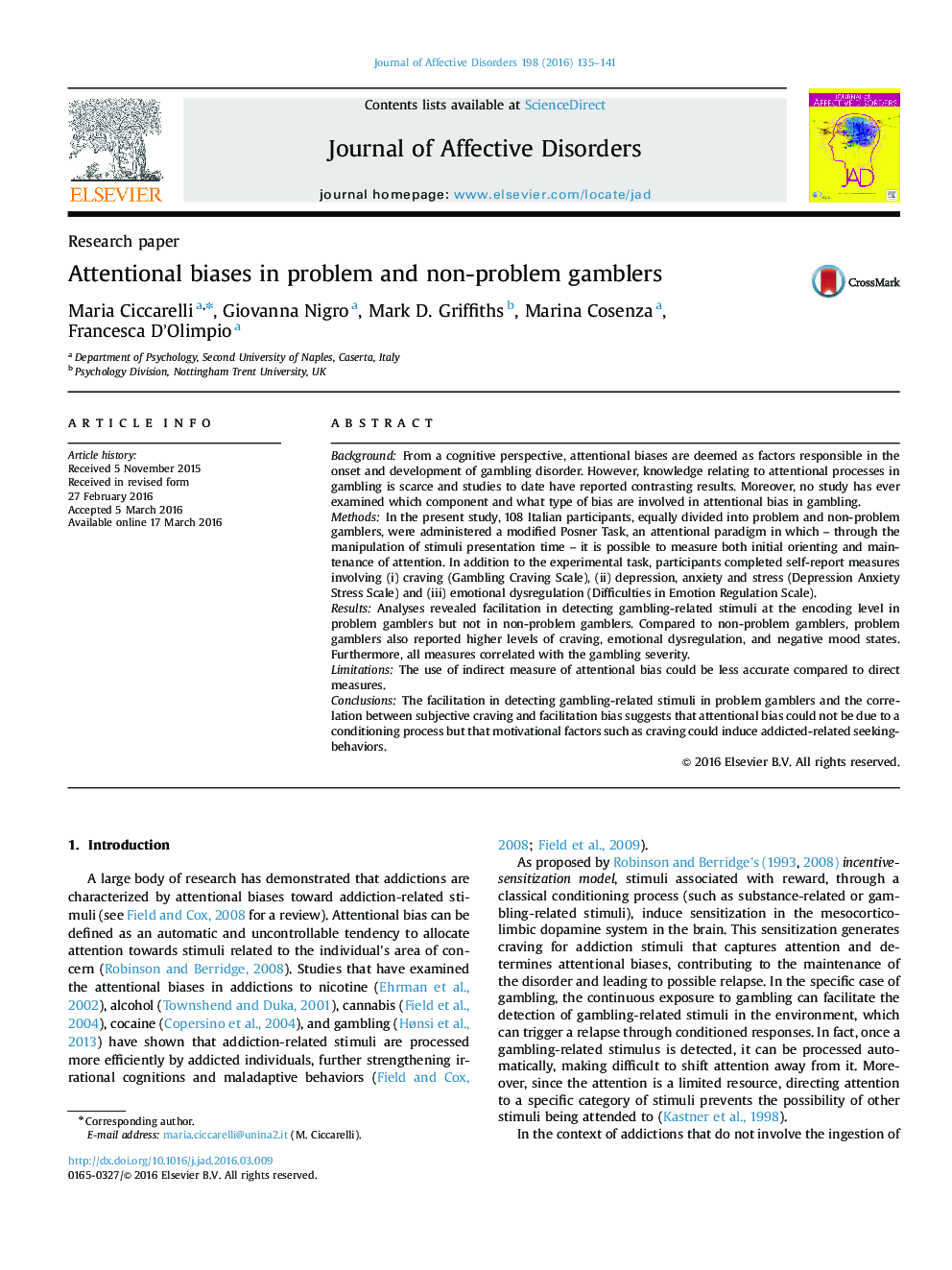| کد مقاله | کد نشریه | سال انتشار | مقاله انگلیسی | نسخه تمام متن |
|---|---|---|---|---|
| 6230199 | 1608127 | 2016 | 7 صفحه PDF | دانلود رایگان |
- Attentional bias, emotions and craving in gamblers and controls were assessed.
- Problem gamblers showed facilitation bias compared to controls.
- Problem gamblers reported high craving and negative mood states.
- Problem gamblers showed high emotional dysregulation.
- Correlations between facilitation bias and craving were observed.
BackgroundFrom a cognitive perspective, attentional biases are deemed as factors responsible in the onset and development of gambling disorder. However, knowledge relating to attentional processes in gambling is scarce and studies to date have reported contrasting results. Moreover, no study has ever examined which component and what type of bias are involved in attentional bias in gambling.MethodsIn the present study, 108 Italian participants, equally divided into problem and non-problem gamblers, were administered a modified Posner Task, an attentional paradigm in which - through the manipulation of stimuli presentation time - it is possible to measure both initial orienting and maintenance of attention. In addition to the experimental task, participants completed self-report measures involving (i) craving (Gambling Craving Scale), (ii) depression, anxiety and stress (Depression Anxiety Stress Scale) and (iii) emotional dysregulation (Difficulties in Emotion Regulation Scale).ResultsAnalyses revealed facilitation in detecting gambling-related stimuli at the encoding level in problem gamblers but not in non-problem gamblers. Compared to non-problem gamblers, problem gamblers also reported higher levels of craving, emotional dysregulation, and negative mood states. Furthermore, all measures correlated with the gambling severity.LimitationsThe use of indirect measure of attentional bias could be less accurate compared to direct measures.ConclusionsThe facilitation in detecting gambling-related stimuli in problem gamblers and the correlation between subjective craving and facilitation bias suggests that attentional bias could not be due to a conditioning process but that motivational factors such as craving could induce addicted-related seeking-behaviors.
Journal: Journal of Affective Disorders - Volume 198, 1 July 2016, Pages 135-141
